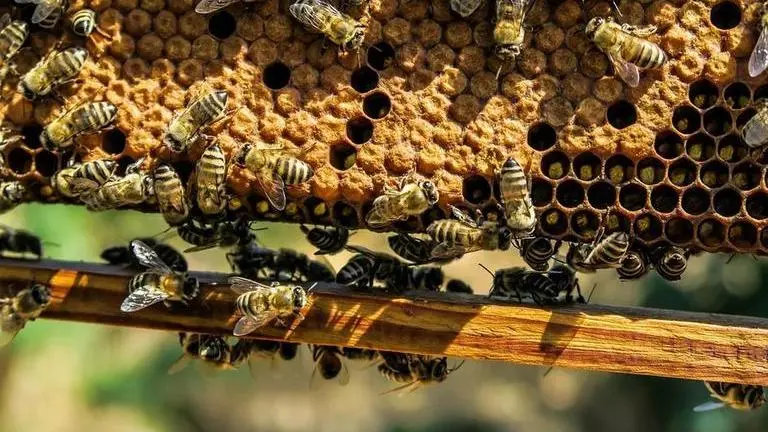Updated 5 December 2021 at 20:44 IST
In Spain, Honeybees survive for weeks covered under volcanic ash in La Palma: Reports
Rescuers had to wait 50 days until it was safe to open the hives, and were surprised to find that five of the six bee houses had survived.
- World News
- 2 min read

In what could be termed as miraculous, thousands of bees have survived weeks of being covered in volcanic ash in Spain's Canary Islands. Six hives located only 600 metres from the La Palma volcano have been entirely or partially buried by a thick layer of ash since the volcano began erupting in mid-September. Rescuers had to wait 50 days until it was safe to open the hives, and were surprised to find that five of the six bee houses had survived.
According to Antonio Quesada, a beekeeper in the Canary Islands and spokesperson for the Gran Canaria Beekeepers Association, the bees not only survived the volcano's heat and poisonous gases, but they also avoided starvation by feeding off honey supplies inside the hive, The New York Times reported. He stated that it's astonishing how such a tiny animal can have that tenacity, that ability to survive. Propolis, a resin-like material often referred to as bee glue, was utilised by the Canary black bees to enclose themselves inside the hive, he said. "They shielded themselves against the gases. The bees also made sure to leave a little opening so that they could use it later to escape," Quesada was quoted by the American daily as saying.
More than 100 beekeepers manage hives in La Palma
More than 100 beekeepers in La Palma, an island of 80,000 inhabitants, manage hives with millions of honeybees. They also serve as crucial workers in the local ecology and key economic participants for those who sell honey around the region. The bees' survival was a ray of hope for La Palma, a tourist island in Spain's Canary archipelago, which had been devastated by the eruption.
The bees' ability to survive under such harsh conditions served as a reminder of their tenacity, a trait that is frequently neglected in articles about the threats they face from pesticides, parasites, and habitat loss, among other dangers, the outlet reported. Elas González, president of the ADS Beekeepers of La Palma, stated that bees were a little fortunate as volcanic ash that fell on the hives was thin and light, which allowed oxygen to enter. Hundreds of other hives were also saved and relocated to different parts of the island, he said as reported by The New York Times citing EFE, a Spanish news agency.
Advertisement
Image: Pixabay/Representative
Published By : Anurag Roushan
Published On: 5 December 2021 at 20:44 IST
